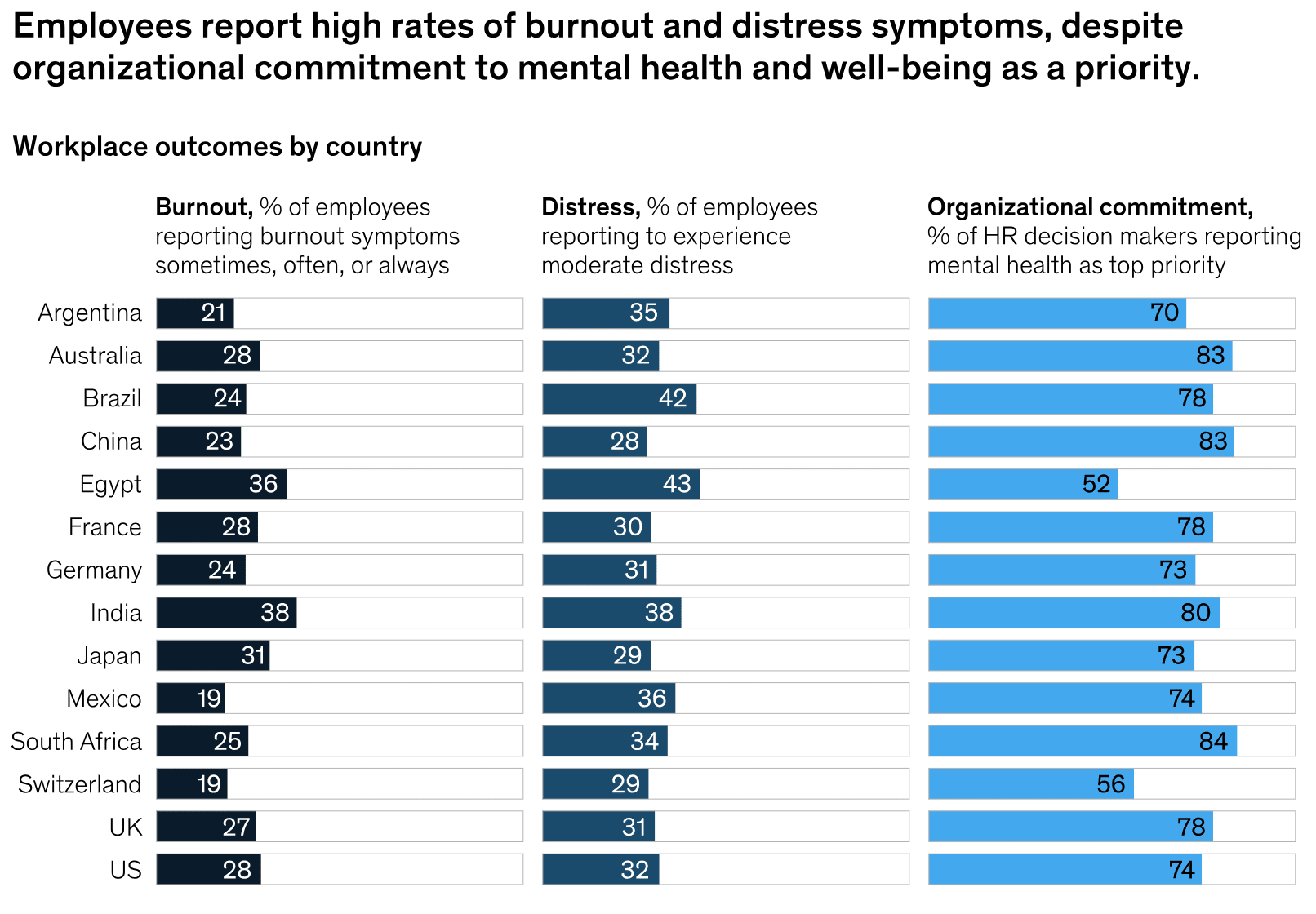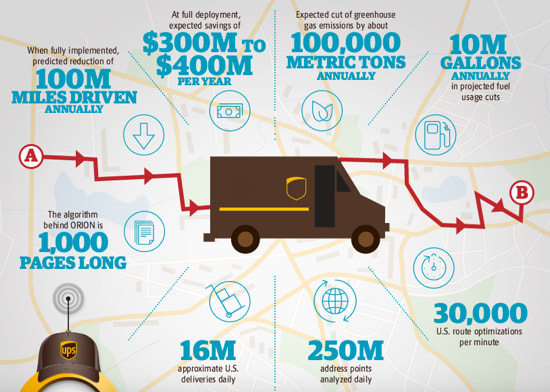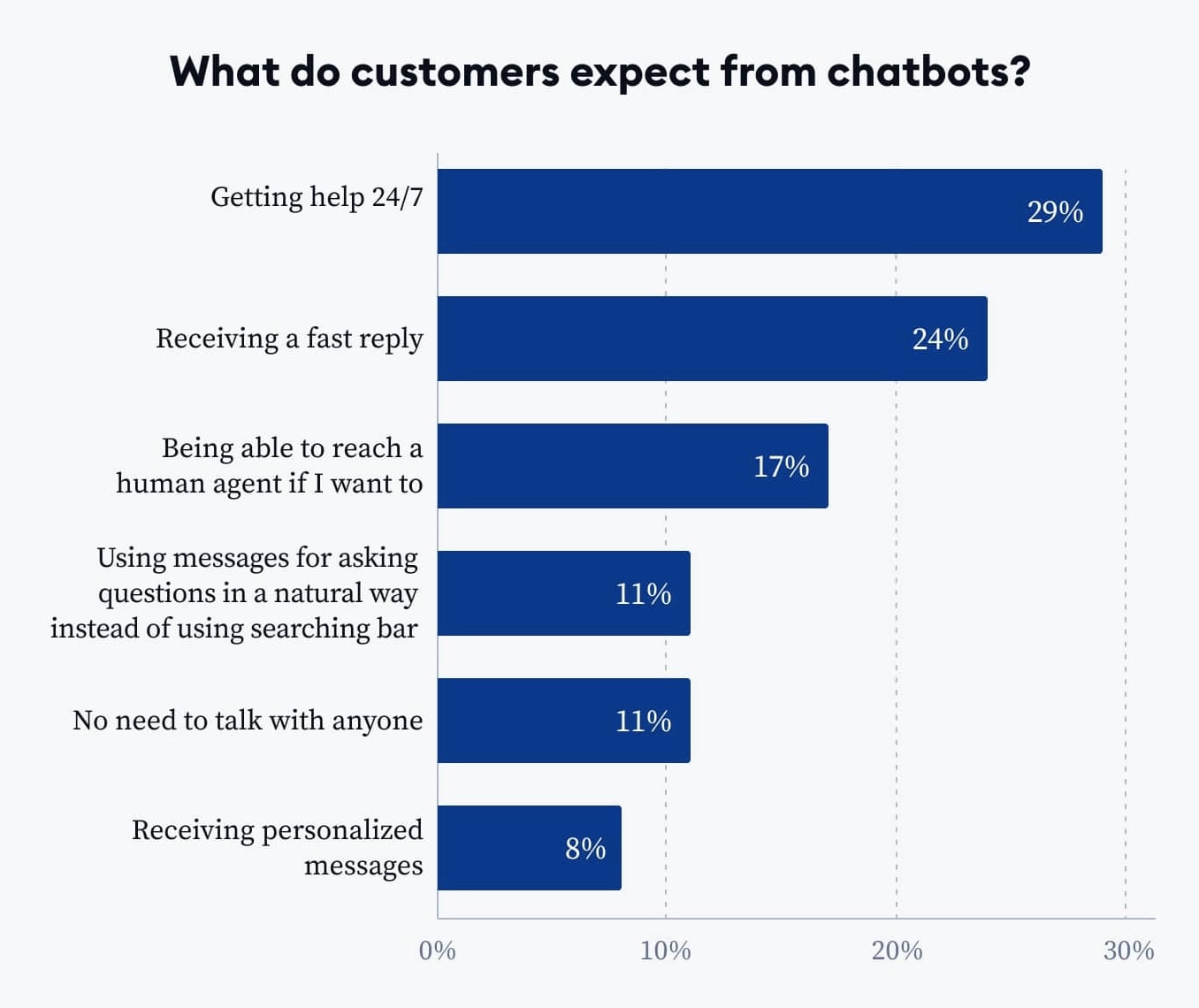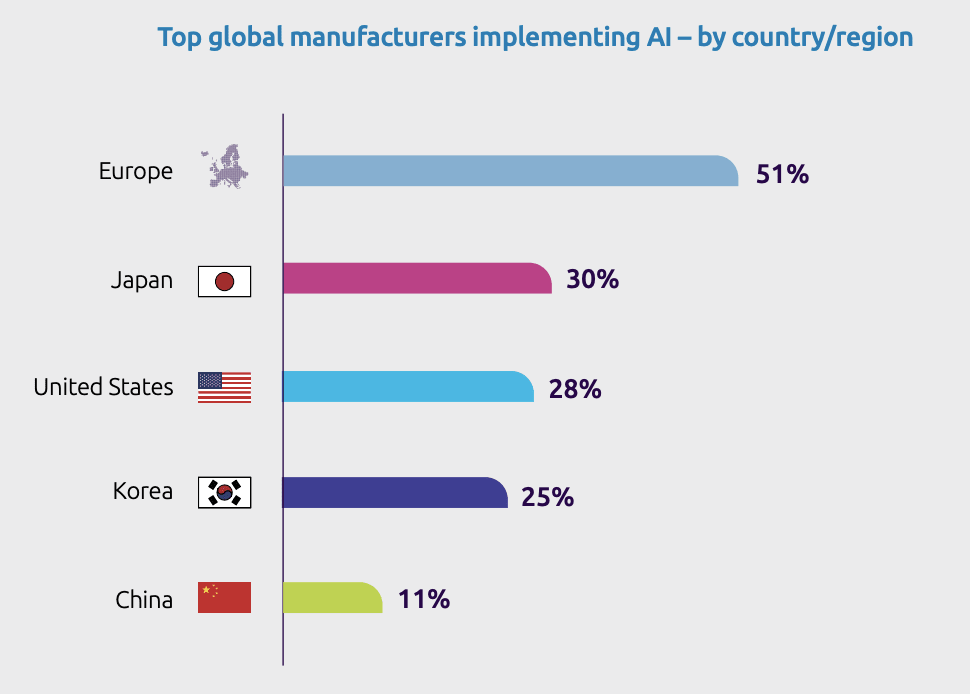10 Real-World Problems AI Can Solve for Your Business
Learn to use AI and machine learning to streamline workflows in every department of your business.
 December 8, 2023
December 8, 2023 11 minute reading
11 minute reading
Artificial intelligence (AI) and machine learning (ML) technologies are becoming a part of everyday business. Don’t believe it?
Sixty-four percent of business owners believe AI will improve customer relationships. But that’s not the only area it can improve—AI is solving real-world problems for at least 10 departments.
In this guide, we’ll discuss those departments and how AI is helping businesses improve customer relationships.
Understanding AI and machine learning
AI and ML are two distinct yet related approaches to automation. AI covers a wide range of topics—from robotics to computer vision—while ML is a subset that focuses on building algorithms that learn from data sets and make predictions.
By leveraging these technologies, businesses can:
Optimize processes. AI can look at historical and real-time data to predict customer behavior and help you make more informed decisions.
Automate tasks. AI can automate time-consuming tasks, such as the onboarding process for new hires or chatbot interactions.
Improve customer experience. AI can provide personalized recommendations to customers, improving their shopping experience and overall perception of your brand.
Increase efficiency. AI allows you to produce more content for your digital marketing efforts by assisting with the brainstorming and outlining process.
Reduce costs. AI can identify bottlenecks and inform your marketing and sales strategies, saving you money and prevent avoidable issues.
AI applies in almost every area of a business. Here are 10 specific departments that can leverage AI to reach the aforementioned benefits.
Hire Midjourney Artists on Fiverr today
1. Marketing
Marketing is one area of your company that can use AI and ML to simplify and speed up workflows. There are three key ways to leverage:
AI-powered analytics
Natural language processing (NLP)
Generative AI
Businesses can gain valuable insights into customer preferences and behavior, and accelerate tedious tasks.
“I'm seeing marketing teams using AI to synthesize data and surface market insights,” says Alaura Weaver, content marketing and community leader at Writer, a generative AI platform for enterprises. “Projects that might have taken weeks are now taking hours, which means marketing strategies are getting operationalized and implemented faster.”
AI-powered analytics for informed decision-making
Before AI, marketers had to sift through data themselves to uncover whether campaigns were effective, what trends were occurring, and customer behavior. AI-powered analytics empower marketers to create targeted marketing campaigns and personalized recommendations based on meaningful insights.
Nike leverages AI in their latest AI “By You” campaign, allowing consumers to customize their shoes through the power of AI.

Example of how you can customize a Nike shoe with AI.
By efficiently analyzing customer data, AI can identify patterns in behavior that can develop messages tailored to individual customers. For example, if a customer shows continued interest in a category of products, AI can spot this and offer a coupon code applied to those types of purchases.
Check out the top 16 social media analytics tools, some of which are powered by AI solutions.
Natural language processing for sentiment analysis
NLP can analyze sentiment to help businesses understand customer feedback and refine their brand. For instance, these AI systems look at your content and suggest ways to improve it to increase engagement rates.
NLP can also monitor your social media channels for customer sentiment and show you real-time insights about how your target market responds to your products.
Generative AI for content creation and regulation
Generative AI is a branch of ML that creates brand new content, such as images, audio, and text. ChatGPT is generative AI, though ChatGPT limitations mean you should invest in AI software based on your own training data—or train ChatGPT with your business data. Marketers use generative AI to create blog content, social media posts, website copy, and more.
“When we talk about generative AI for enterprise marketing teams, we're looking at three buckets of use cases. One, Create, aka the generative aspect of AI—taking existing data and turning it into something new. Two, Analyze, aka the intelligence aspect of AI—synthesizing and surfacing information. Three, Govern, aka enforcing brand or regulatory rules.”

Fiverr freelancer Gili uses Midjourney’s generative AI capabilities to create book covers for clients.
2. Sales
Sales often analyze tons of data to identify leads and drive sales. With AI, businesses can automate repetitive tasks and discover the best leads with different machine learning models.
Lead generation and scoring
Automated lead scoring systems and personalized customer experiences help sales teams build better relationships with customers. AI gives you access to data enrichment that paints a more holistic view of a customer after analyzing their interactions and scoring them against predetermined criteria.
Sales forecasting models
Inaccuracies are always possible, but even more so when humans are operating on their own. AI-powered forecasts ensure your sales forecast is more accurate by looking at data to identify patterns in key metrics like churn rate, new sales, and renewals for a time.
AI-powered sales assistants for automating tasks
AI can automate tedious tasks to free sales representatives up for more human-based tasks. You can automate follow-up activities, segmentation options, and leverage chatbots to streamline these day-to-day activities.
3. Human resources
Many human resources tasks require a human touch, but you can streamline a lot using automation—such as recruiting and onboarding processes. Engaged employees show 21% greater profitability, so always make data-driven decisions that benefit your employees.
AI-powered recruitment process
Hiring new employees takes away valuable time from the human resources department. Delegate these parts of the process to AI:
Resume screening
Candidate assessments
Customized messaging
This makes the recruitment process for full-time employees and freelancers more efficient
AI chatbots for employee onboarding
Chatbots aren’t only useful when they’re customer-facing. Building an AI chatbot to streamline the onboarding process can make a new hire feel more comfortable, as they have a virtual assistant to ask questions to. Chatbots can also remind these hires about the proper documentation deadlines and offer them any resources you’ve already set up.
Sentiment analysis for employee satisfaction
Happy employees mean a happy business, but in 2022 McKinsey reported that one in four employees experience burnout symptoms. AI can address this problem through sentiment analysis of employee feedback, helping HR teams gauge employee satisfaction, and identify areas for improvement.
4. Finance
The financial sector embraces AI technology, leveraging its power to automate tedious tasks and optimize decision-making. AI algorithms can streamline bookkeeping and expense management processes, detect fraud, and prepare accurate financial forecasts. Save the complex problems for your accounting team and let AI handle the rest.
AI algorithms for fraud detection
Fraud detection allows companies to identify suspicious transactions before they become a problem. AI algorithms are trained on large datasets of past fraudulent activity to detect anomalies in real time, minimizing the potential damage of financial fraud.
Automated bookkeeping and expense management
What if your bookkeeper made no errors and did the work in half the time? AI-powered expense management software can provide advanced financial insights and detect patterns a human eye may miss.
Predictive analytics for financial forecasting
AI models also provide predictive analytics that help businesses make better decisions for budgeting and forecasting. AI automatically analyzes patterns in data—such as market trends, customer behavior, and historical performance metrics—to provide meaningful insights into the organization’s financial future.
5. Operations
Without operations, products would never make it to customers. The logistics behind inventory management, supply chains, and demand forecasting can be daunting for smaller startups—and even larger corporations. Powerful AI algorithms can lead businesses to find better providers, run better routes, and maintain better equipment.
AI-powered demand forecasting
Trying to guess how much inventory to stock and where to allocate resources is tricky. With AI, businesses don’t have to guess. AI algorithms analyze historical data, trends, and demand patterns to adjust production levels according to demand—helping companies maximize output while avoiding overproduction.
ML for predictive maintenance
ML algorithms minimize wastage and detect equipment failures before they occur. This problem-solving aspect empowers businesses to always have fully functioning equipment, leading to fewer delays and product issues and better user experiences.
AI-driven supply chain optimization
AI gives businesses greater control over the entire supply chain optimization process. UPS, one of the world’s largest package delivery companies, fully deployed AI in 2016 to optimize their routes. The investment paid off, saving UPS around 100 million miles and 10 million gallons of fuel per year. It’s a great example of how businesses can use AI to optimize deliveries and even help the environment.
6. Customer service
Businesses are leveraging AI capabilities to provide better customer experiences. Immediate support is expected, 62% of consumers would rather talk to a chatbot than wait 15 minutes for a response from a human agent.
AI chatbots for 24/7 assistance
Customers expect businesses to provide instant support. If you don’t have the resources to have an employee monitoring queries 24-7 , a conversational chatbot can keep customers happy. Consider speech recognition software so customers can speak verbally with your chatbot.
Unique recommendations for a personalized experience
According to Zendesk, 70% of consumers spend more with companies that offer fluid, personalized, and seamless customer experiences. One way to accomplish this is by leveraging AI technologies that analyze customer purchase history and preferences to curate product recommendations unique to them.
Predictive analytics to anticipate customer needs
You can’t make everyone happy all the time, but AI can put forth your best effort. Allow ML algorithms access to customer data to analyze concerns, behavioral patterns, and overall customer sentiment. This gives you a handle on your general customer satisfaction levels before anything gets out of hand.
7. Security
AI technology offers various solutions to safeguard businesses from malicious actors.
AI-powered threat detection
While humans excel in creativity, AI is proven to be more efficient and accurate at sifting through large datasets. This allows AI software to notice threats in real time and alert administrators before any damage is done.
AI can detect threats such as:
Financial fraud
Spam
Identity fraud
Phishing
Malware
Monitoring user activity for suspicious behavior
AI can observe online user activity on various platforms and alert administrators when anything out of the ordinary occurs. For example, AI algorithms using deep learning technology can detect peculiar patterns pointing to malicious behavior or attempts at illegal access.
AI-generated security incident reports also provide detailed insights into an attack and potential steps to prevent future attacks.
ML for preventing forgery
Automated systems are vulnerable to many threats. AI is sensitive to nuances in signatures, discrepancies in document layouts and fonts, as well as unusual patterns of spending. This allows AI to detect forgery easily. For example, AI will detect bad actors uploading fake identification documents, since the fraud detection system was trained on other fake documents.
8. Quality control
Businesses can use AI in quality control to detect potential issues early and ensure their products meet the highest standards. AI can also suggest smarter ways to work.
Image recognition for identifying defects
Image recognition algorithms can identify defects in products and process materials with high accuracy. This technology can detect flaws or irregularities in products across industries. It’s popular in the aviation industry because aircrafts generate massive amounts of data.
AI-powered algorithms for streamlining workflows
Algorithms can detect areas for improvement within systems and suggest new ways to optimize productivity levels and reduce costs. The insights generated from these algorithms help companies identify potential risks and opportunities for improvement or expansion.
9. Manufacturing
Brainstorming product ideas and then attempting to bring them to life is no easy task. Businesses that lack in the manufacturing department may consider leveraging AI for ideation and production.
Generative AI for product design
Designers work with generative AI to test new product ideas. After entering parameters and budget, AI develops various blueprints designers test, accelerating the production process and allowing for creativity and innovation.
Robotics for manufacturing
Introducing robotics into manufacturing is no novel idea, but implementing AI means they get smarter and more efficient. They continuously get better and practice greater precision than humans do at certain tasks.
10. IT
Many IT department professionals use AI to streamline daily tasks. AI and ML can help with the coding process and even develop your own AI software.
AI coding tools for software development
Since AI coding tools are usually trained on large amounts of programming language, they’re fluent in the language developers speak. Many developers use AI coding tools for code auto-completion, analyzing source code, and more. Check out these eight AI coding tools to supercharge your productivity.
Custom AI solutions with Fiverr freelancers
If you need help with custom AI development software, enlist the help of talented freelancers who can make your AI needs a reality.
Whether you’re in the healthcare industry, data science, or a small ecommerce business, there are plenty of available AI solutions to streamline your workflows.
Join Fiverr to access a growing marketplace of expert freelancers who can build and integrate AI Engines into your stack.







